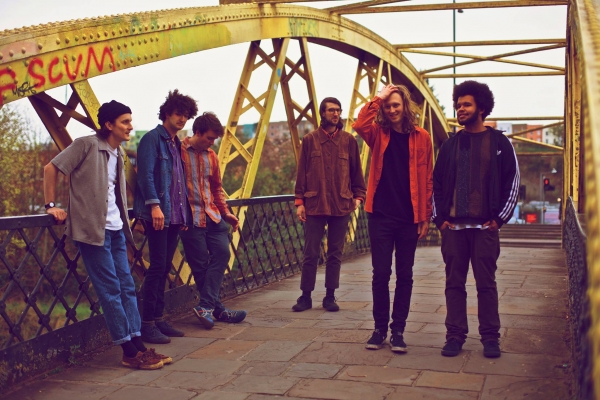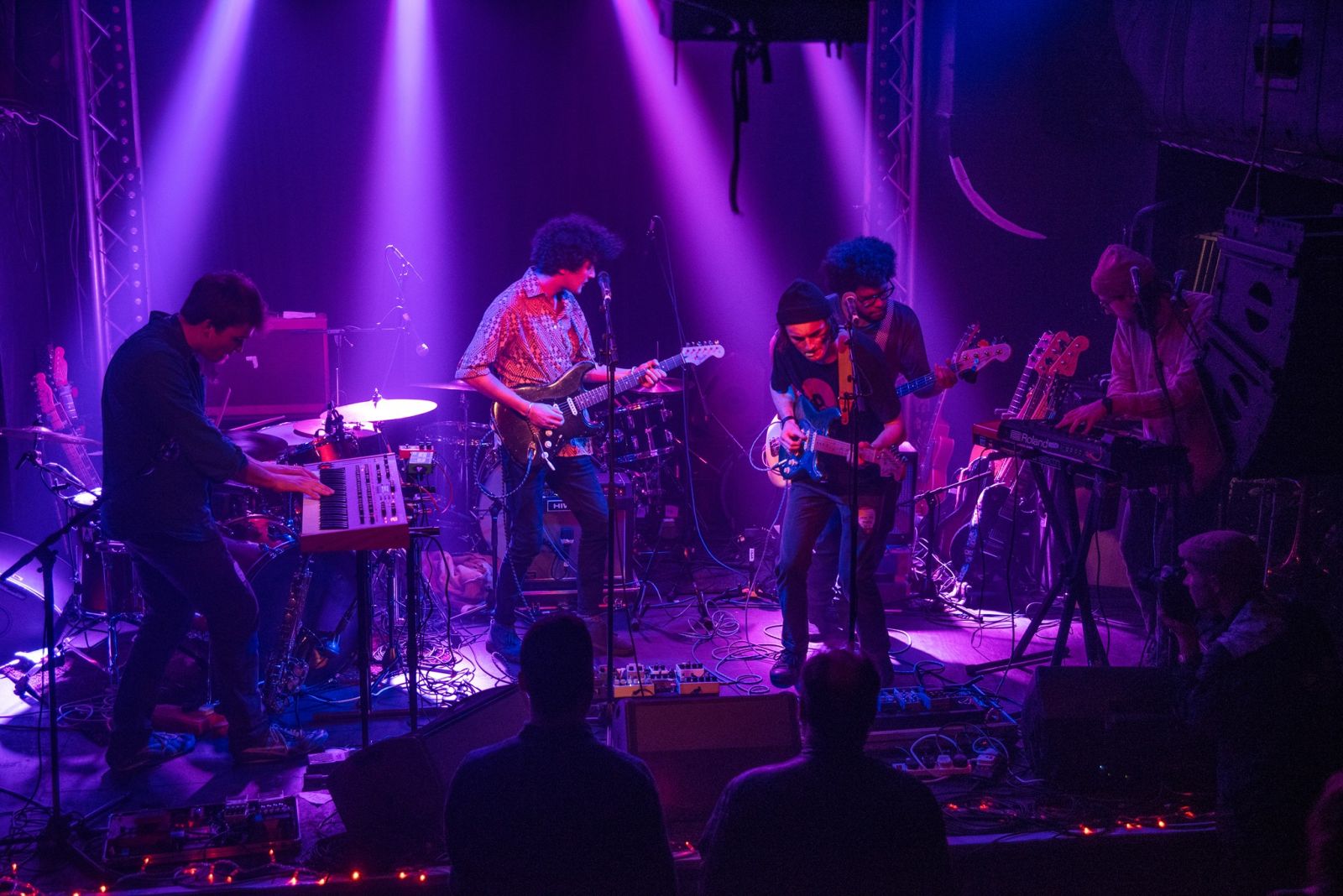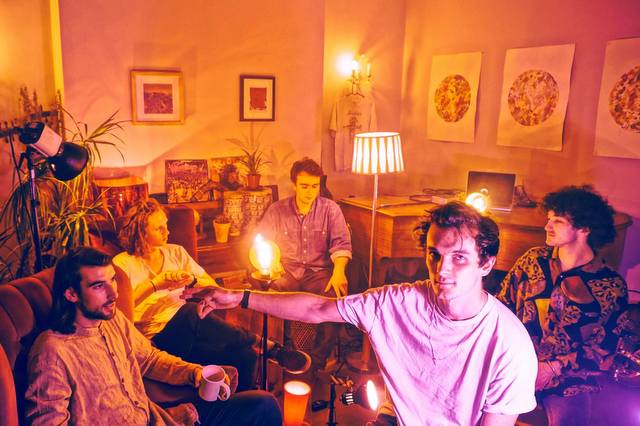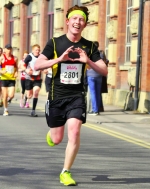
The Sound of Bristol: Cousin Kula
Posted on: 28 Oct 2016For the latest instalment of the Sound of Bristol, we sit down with Elliot and James from Cousin Kula, a shimmeringly psychedelic six-piece who have gone from strength to strength in the year-and-a-bit since their formation.

It wouldn’t be unfair to say that this year’s Simple Things wasn’t the most cheerful festival in the world. Not in terms of the atmosphere among the audience - who remained unabashedly friendly throughout - but in terms of the music on display, which, with gloom-mongers as disparately picked as Warpaint, LICE and Helena Hauff, was very much its negative.
At the very centre of all this though was the stage in the foyer of Colston Hall, a hotbed of happy music which provided a place of respite for the moments when the techno had got just a little bit too nosebleed, or the punks had got a little bit too naked. While the many-torsoed IDLES were spitting vitriol into the faces of their faithful at the Sportsman, it was here that Kanda Bongo Man were plying their Congolese-come-French soukous and spreading joy, consuming and consummate. And while Ms Hauff was eviscerating eye-sockets over in Lakota’s second room, it was here that Charlotte Church was leading bliss-abounding sing-a-longs of ‘90s classics ranging from Sugababes to Nine Inch Nails.
And it was here that the six chaps from Cousin Kula opened the festival. With a curveball make-up which adds a trombone and sax to the more traditional guitar/bass/keys/drums combination, they peddle a sound which swings with the psychedelic, riddled with brass and undercut with odd afro-beat rhythms. The songs twist and turn, second-guessing their natural conclusions with breakdowns completely incongruous to the rest of the tune. It is during these moments that front-man Elliot Ellison takes a break from delivering his beguiling vocal to jerk around as much as the guitar pinned to his chest will allow him to.

Speaking to him before the show, he reveals that their existence within this ‘happy’ bracket is not consciously sought. “Lyrically, I don’t try and write really happy, feel-good tunes,” he admits. “Sometimes there’s a juxtaposition with the lyrics against the music which I like. I don’t know how well you can hear the lyrics live though!”
James, Kula’s wild-haired, quick-tongued drummer, suggests that musically the band’s song-writing is more decidedly positive and that they “do try to write music which gives people a good vibe.” Drawing a point of contrast with the slew of the aforementioned local (post-)punk bands rapidly rising to prominence in the city, he casts his output in an altogether rosier light: “Obviously, with bands like IDLES and LICE, what they do well is really passionately deliver a raw message about the inconsistencies and things which don’t add up in today’s society - that’s amazing and they do it so well,” he adds, diplomatically. “That’s not something that we do as prominently in our music. That’s not to say that we write strictly happy music, but we don’t touch on subjects as in-your-face as they do.”
The contrast made by the drummer, and, moreover, the manner in which it is couched, is intriguing and is made all the more so when taken in the context of their show at Simple Things. Amongst the crowd were several members of other local bands including IDLES, the singer of whom, Joe Talbot, tells me, “This kind of music isn’t really [his] thing, but these guys play really well.” This reciprocal acknowledgement of each other’s fundamental difference, yet the inherent desire to support despite this, is indicative of the cooperative scene that has been quietly developing in Bristol over the last couple of years, of which each band represents one side of the same coin.
Both members of the band speak hurriedly to this point: “We feel like part of a network now. Everyone helps us out and we know loads of musicians - we didn’t have that when we first came here,” says Elliot. “I remember being in previous bands here and trying to book gigs, and I just didn’t have a clue. But now we know loads of people and are being offered gigs all the time, so it’s just a different thing.”

This is something of a recent development however, as James points out: “It just seems like in the last couple of years there have been loads of sick bands coming up. Young bands, all of similar ages to us, all with a similar outlook on music and the industry and where they want to go, and I feel like we’re a part of that little group, part of that network of like-minded, friendly musicians. It’s with people we respect as well. We do gigs with our mates, so we support them and they support us around the place.”
“There’s a scene happening. There’s definitely something happening and we’re a part of it. A movement. It’s nice to see Bristol being recognised as not just about trip-hop and drum ‘n’ bass anymore,” adds Elliot, pertinently.
James proceeds to reel off a list of local bands who have lately been piquing his ears, adding the likes of Bad Sounds, New Palace Talkies, Tamu Masif, Goan Dogs and ThisIsDA to the already-mentioned LICE and IDLES. “It’s good that this new wave of Bristol music is getting some press,” he posits. “It removes the pigeon-hole from Bristol, so hopefully people who aren’t from here can see that actually there’s such an eclectic mix of music coming out of the city at the moment.”

Having shown such excitement for the newly-documented musical variety in Bristol, it is perhaps unsurprising to hear of the myriad influences which inform the output of Cousin Kula (loosely grouped together by the band under the label of ‘psych-pop’, what Elliot describes as “trying to make guitars not sound like guitars”), and how these fit together organically.
“We have so many influences; they change so often and they vary. Every member is doing and listening to something different,” Elliot explains. “James is really into his jazz. Jordan is really into ‘70s prog-rock. I really like loads of world music.”
They all agree on bands like (‘70s fusion pioneers) Mahavishnu Orchestra and fellow psych-rockers Syd Arthur, but with the six of them operating on such different planes in terms of taste, the scope for genre blurring and overlap is huge. “For us, and this will sound so clichéd,” begins James, tentatively, “ it’s not about just listening to psychedelic bands, it’s about listening to old jazz, modern jazz, dance music, electronic music, folk…”
“Maybe we should amend ‘psych-rock’ to ‘psychedelic-world-jazz-folk’,” quips Elliot.
However you term it though, Cousin Kula are crafting a noise both increasingly idiosyncratic and increasingly celebrated, with praise being won from people in high places. Expect this increase to only continue with the release of second single, ‘Ode To Lyle’, which drops on Chiverin in December, and their largest tour to date which will subsequently take them onto the continent.
Article by:

An ardent Geordie minus the accent, Sam seemingly strove to get as far away from the Toon as possible, as soon as university beckoned. Three undergraduate years at UoB were more than ample time for Bristol (as it inevitably does) to get under his skin, and so here he remains: reporting, as Assistant Editor, on the cultural happenings which so infatuated him with the city. Catch him at sam@365bristol.com.

